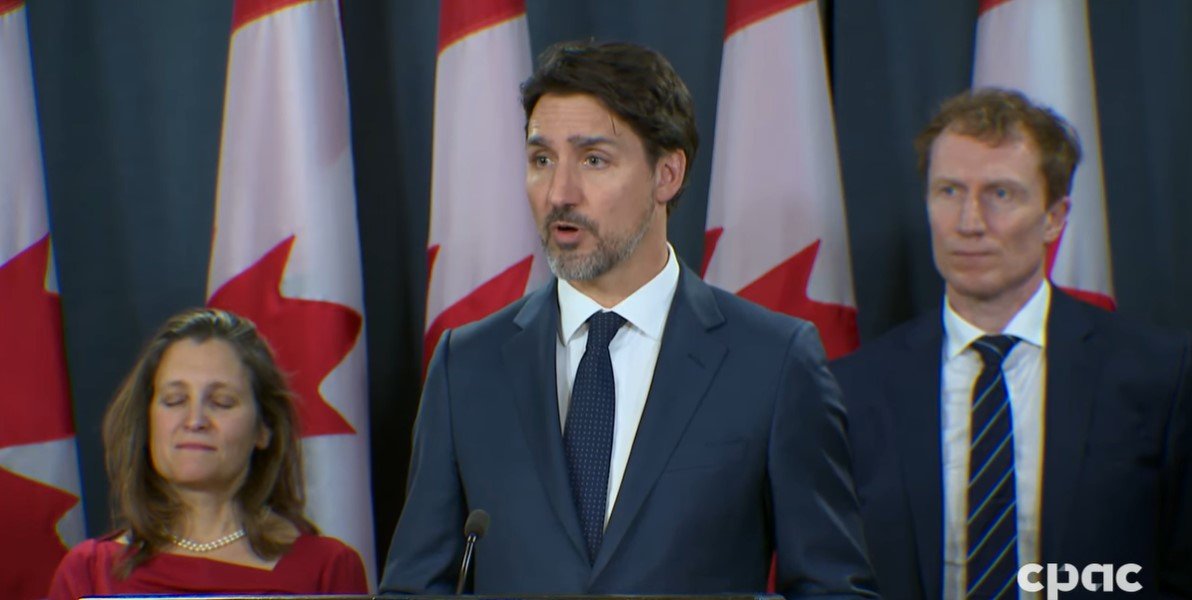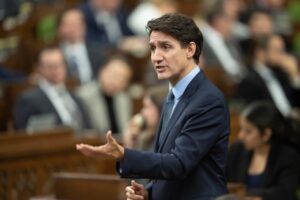
Prime Minister Justin Trudeau tried to let Donald Trump down gently Thursday, warning that Canada is still a long way from being ready to agree to relax mutual travel restrictions along its border with the United States.
Trudeau said he discussed the issue with the U.S. president during a videoconference with fellow G7 leaders, and the two agreed — given the unique relationship between the two countries — that they would continue to take a different approach to managing bilateral travel with each other from the ones they use with the rest of the world.
That does not mean, however, that a decision to relax the travel ban is imminent, he added.
“The work that we continue to do to keep our citizens safe, while co-ordinating very carefully, is unlike our approaches with other countries around the world. There’s a recognition that as we move forward, there will be special thought given to this relationship,” Trudeau said.
“But at the same time, we know that there is a significant amount of time still before we can talk about loosening such restrictions.”
Trump, who often makes it abundantly clear that he’s in a hurry to get the American economy back on its feet, seemed to suggest Wednesday that his impatience might well extend to the northern border — a shift in the usual balance of anxieties that has tended to define the Canada-U.S. relationship.
The toll of the coronavirus outbreak in the U.S. exceeds that of anywhere else in the world, with more than 560,000 active cases and 33,000 deaths to date. Canada, by comparison, has about 18,500 active cases and just over 1,000 deaths.
Trump seemed to suggest the two were comparable.
“Our relationship with Canada is very good — we’ll talk about that. It will be one of the early borders to be released,” the president said. Canada’s doing well, we’re doing well — so we’ll see.”
It’s been nearly a month since the two countries negotiated their 30-day ban on non-essential travel in both directions, a remarkable agreement that exempted the flow of trade and commerce, as well as vital health care workers like nurses who live and work on opposite sides of the border.
That agreement is due to expire by Tuesday; Canadian government officials say talks on whether to revisit it are ongoing. Other U.S. travel restrictions, such as a ban on foreign nationals arriving from a long list of European countries, are likely to remain in place a while longer, Trump said.
“We have a lot of nations that are heavily infected — some are getting better, (but) some are still on the way up, unfortunately. We’re keeping very strong borders with those nations,” he said.
“But with Canada, we are talking about different things.”




